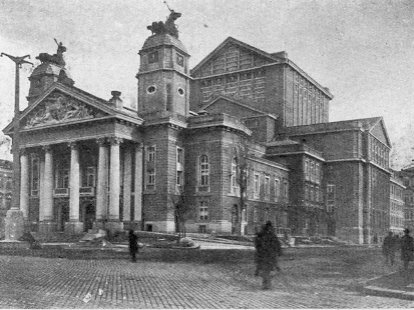
Bulgaria's new National Theater, Sofia
CHAPTER XIII
Singing and acting
Bulgaria, of course, has a number of good theaters and an excellent National Opera. Being members of the great Slav family, the most artistic among the races of men, the Bulgarians could not but be dramatic and musical. Having sung their way through all their dark centuries of oppression by means of dramatic folk songs it was inevitable that having attained freedom and created an intelligentsia, they should give much attention to acting and singing. Most educated Bulgarians, though as a rule poor, are glad to skimp on their food for a few days in order to hear classical music.
The first Bulgarian drama was played in 1856, more than 'twenty years before the nation was liberated. It was written by a school teacher, Sava Dobroplodny and acted by his pupils. But even before the appearance of this first full fledged theatrical presentation many other teachers had prepared short dialogues and sketches for their pupils in order to help them learn moral and historical lessons exalting diligence, knowledge and virtue. Such dramatized catechisms were often of a patriotic nature and were given before the public on important holidays. And Dobroplodny's first drama was of the same kind. In fact, all of Bulgaria's first theatrical productions were inspired predominantly by moral and spiritual ideals. They served the national cause 'and in this respect were of a piece with the first Bulgarian newspapers, poems, songs and novels. All the Bulgarian cultural leaders at that time had a burden on their hearts and would have been ashamed to indulge in the selfish luxury of art for art's sake. They had a mission to perform. They wanted to "uplift" and liberate their people and worked at it with all their might, some with songs, many with schools, a few others with dramas and more with guns. The theater was a school, a teacher of patriotism, a preacher of morals; it was a prophet graphically portraying to timid people their humiliating backward situation and urging them to arise, press forward and free themselves.
After the presentation of the first native drama in the big "Turkish Coffee House" in the town bf Shumen, it and other pieces were given by teachers and pupils in dozens of other Bulgarian towns and ten years later the first professional troupe was formed under the direction of Dobri P. Voinikoff. This group of actors were the real pioneers of the Bulgarian theater. Most of the Bulgarians at that time were illiterate. There was not a theater building in the whole land and practically no good hotels. Besides, the people were poor, accustomed to work very late at night and not much inclined to navigate their muddy streets in the dark. Working 14 hours a day, masters and apprentices together, they had little energy for sitting up to attend theaters. The plays had to be given in small coffee houses, or schools or saloons, on holidays; there was no stage, only improvised curtains, practically no scenery and but the simplest lighting facilities — candles or crude kerosene lamps without chimneys. Yet these actors were aflame with a crusading passion and overcame all obstacles, giving dozens of different plays in scores of different towns. The repertoire consisted largely of Bulgarian pieces, inspiring honesty, industry and patriotism. And crude as was the environment, the players themselves acted with much skill. Indeed this troupe became so famous that it was invited to play in the National Rumanian Theater at Bucharest before the Rumanian King.
After the Liberation in 1878 the city of Philippopolis in south central Bulgaria, at that time the largest town in the country, became the center of theatrical activity, A professional troupe was formed there and given a subsidy of 800 dollars by the state. It had a real theater to play in, discovered and developed much histrionic talent of a high order and aroused interest in theatrical productions. A few years later it went to the capital, Sofia, then a small backward city, and gave plays in the shed of a Japanese acrobat.

Bulgaria's new National Theater, Sofia
The public was much pleased and the government gave the troupe a subsidy of 600 dollars and again 2,000 dollars on condition that it stay permanently in the capital and that it improve its repertoire and its personnel.
It is well known that actors and actresses are temperamental people, otherwise they would not be actors and actresses — so it is not surprising tint this Sofia theater passed through many vicissitudes. As the number of gifted players increased, it became more and more difficult to preserve harmony and unity among them. Several groups were formed most of which were short lived, but the troupe "Tears and Laughter" survived and in 1892 established itself as the leading theatrical organization in Bulgaria. It was given considerable help by the government and in spite of frequent changes in its personnel, directors and managers, made constant progress, always hampered of course by the lack of a good theater building. In 1904 "Tears and Laughter" became "The Bulgarian National Theater" and was eventually turned into a regular state institution just as the Post Office or Foreign Office. The actors and actresses are state officials divided into categories and allotted fixed salaries as professors, army officers and judges.
In 1907 a convenient and attractive National Theater building was put up in the middle of Sofia. It was burnt down in 1924 and rebuilt in 1929 by means of public contributions and state aid. The new edifice though by no means attractive from the outside, is the best theater in southeast Europe. It is far larger than the first one and contains all the latest appliances designed to make the shifting of scenes quick and easy and to produce the most perfect and natural stage effects.
Without any doubt the Bulgarian theater is now on the highest level of efficiency that it has yet attained. The manager or "regisseur" is a Russian, N.O. Massalitinoff, who was for years an actor in and conductor of the famous Moscow Art Theater. He is not the first foreigner that has contributed to the development of the theatrical art in Bulgaria. Two earlier trainers of much ability were Croatians from Zagreb and one of the most helpful was a Czech from Prague. One may say without exaggeration that the Bulgarian actors are fully equal to those in neighboring countries, but since a theatrical tradition has not yet been established they seem to do better work and attain finer results when under the leadership of outside persons with well established prestige. This is, of course, a temporary practice and eventually Bulgarians will conduct the performances. The Director is V. Vassileff, a Bulgarian judge of much experience and knowledge in theatrical matters.
Many of the Bulgarian players are men and women of outstanding talent.
Most notable among the older actors is Krusteu Sarafoff. With an impressive
mastery of technique, a deep understanding of character, and a rare capacity
for accentuating both the pathetic and the grotesque, he plays the leading
roles in both modern and classic drama. Perhaps it is unjust to single
out the name of Sarafoff for there are half a dozen
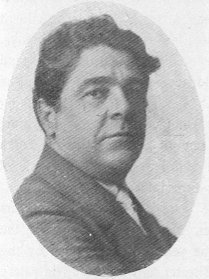 |
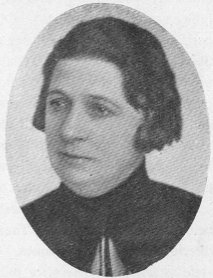 |
| Krusteu Sarafoff | Adriana Budevska |
other veteran players, largely responsible for the creation of the present theater, who are but little inferior to him and are equally loved by the whole Bulgarian intelligentsia. Adriana Budevska perhaps holds first place among the older women players of note, while Sava Ognyanoff is considered by some critics to be even superior to Sarafoff.
It is difficult to select any of the younger stars as especially worthy of mention for there are a number who play brilliantly. One of the best is Ivan Dimoff who usually takes the role of a rather unsophisticated ardent youth often frustrated and thwarted in his efforts to find his way through the mazes of modem life. He has given excellent interpretations of the spendthrift youth in Sutton Vane's "Outward Bound", of Jimmie in "Mary Dugan", of Frantz in the play "The Periphery", by Fr. Langer and of Chatsky in the famous Russian play "Too Much Mind" by Alexander Griboyedoff. What distinguishes Dimoff's acting is his ability to give long sustained speeches or monologues in an unusually natural way and to arouse sympathy for his rather futile, uspoiled "yearnings". Of the actresses taking prominent parts in many plays one of the most fascinating is Marta Popova. She is not a finished, classic artist like Sarah Bernhardt and usually takes humorous or ridiculously pathetic parts, which she plays with extraordinary success. She is a genius at laughing and producing laughter. Of the younger women, playing more serious, moving, gripping roles, one of the foremost is Zorka Iourdanova who has just played with much ability the role of Isolda in the "Clown Tantris" by Ernest Hardt.
At present there are twelve actresses and nineteen actors belonging to the National Theater, besides two conductors, the director and seven beginners. The yearly subsidy given by the state is ten million levs for the Theater and Opera. The salary of the players varies from 25 to 90 dollars according to the number of years they have played and the categories in which they are placed. Now and then special contracts are made with individual artists. Men and women equal to the stars of Europe and America very rarely get as much as a hundred dollars a month.
The National Theater this year has the following repertoire:
Dimiter Shishmanoff — The Staradol Fair
Marcel Pagnol — Marius
Sutton Vane — Outward Bound
William Somerset Maugham — The Letter
Ben Jonson — Valpone
Bruno Frank — The Pearls
Alexander Griboyedoff — The Misfortune of Being too Clever
Fr. Langer — A Camel through the Eye of a Needle
William Shakespeare — Coriolanus
William Shakespeare — Twelfth Night
Remain Rolland — A Fire of Life and Death
Valentine Kataeff — Squaring the Circle
Ernest Hardt — The Clown Tantris
Moliere — The Imaginary Sick Man
Popular Young Stars
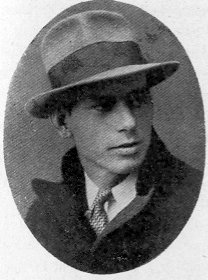 |
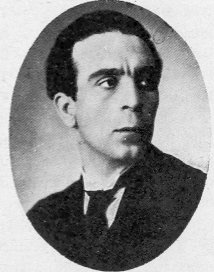 |
| Ivan Dimoff | Constantine Kissimoff |
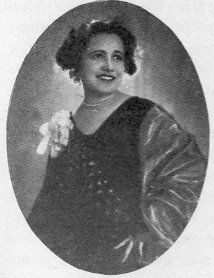 |
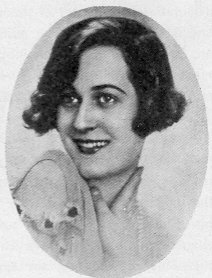 |
| Marta Popova | Zora Iordanova |
There are five communal theaters in Bulgaria and two traveling troupes. In Sofia also there are two private theaters, both playing every evening and frequently giving matinees. One specializes on musical comedies and the other on popular plays that have proven successes in other capitals.
So far the Bulgarian players have shown themselves more gifted than Bulgarian play writers. Many of the leading literary men have tried their hand at drama as a side line but for the most part without striking success. The national poet, Ivan Vazoff, wrote a number of presentable dramas. The brilliant lyric poet and symbolist, P. Yavoroff, produced three dramas containing some impressive parts and the gifted short story writer, P. U. Todoroff, left a number of striking plays, that are, however, stilted and far from perfect. The principal contemporary play writers are S. L. Kostoff and Racho Stoyanoff, whose dramas, representing modern Bulgarian life, are entertaining and impressive but have not the high qualities of Slaveikoff's poetry or Iovkoff's stories.
* * *
The Bulgarian National Opera is as characteristic of the people as their
ultra-democratic constitution, their uniformed school teachers and their
austere craftsmen. When it comes to music the Bulgarian is lavish. There
he is prodigal and relinquishes his customary restraint. He loves to sing
and to hear others sing, to give concerts and listen to them. Singing is
a part of the home, the journey, the excursion and the school program.
On Christmas eve groups of youth come to your house to sing, while other
songs usher in Easter morning. And it is serious, beautiful music that
the people like the best — classical creations. Such a nation naturally
would not consider their state machine complete without a National Opera.
It seems rather strange that a peasant in Podunk who can hardly buy a candle
should be taxed to support prima donnas in Sofia, but for a musical nation,
song is essential and it is not a blunder that the frugal Bulgarians permit
themselves the luxury of a subsidized Opera.
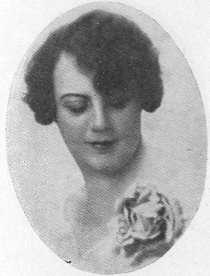 |
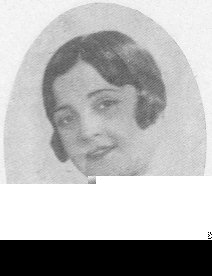 |
| M. Milkova | M. Mitovitch |
It was founded in 1890. That is to say, during that year an operatic
troupe was created in Sofia and given a certain amount of help from the
state. However, it was not able to make its way and after a heroic struggle
lasting two years disbanded. Nearly 15 years passed before another attempt
was made, this time more successfully. During the interval a Musical Academy
in Sofia had been founded and in addition many Bulgarians had studied music
abroad. There had come into existence a group of first rate musicians,
organized in a "National Union" as well as a musical public appreciative
of good singing and able to pass judgment on it. All of these people gave
their hearty support to a Bulgarian tenor, Stoyan Mihailoff, who on returning
in 1907 from Russia, where he had taken leading roles in the best operatic
troupes, set out to organize a Bulgarian opera. His efforts resulted in
the "Opera Society" which during the following year gave such successful
performances in the new National Theater at Sofia that the Ministry of
Public Instruction let it have a grant of 800 dollars and sent four of
the more promising younger singers of the troupe abroad to study. Five
extremely difficult years followed, during which the initiators of the
enterprise made great personal sacrifices until at last in 1913, finding
that their resources were exhausted/they induced the state to come to the
rescue and take over the company. Eleven years later the Opera, as the
Drama before it, was made a regular and official state institution and
the singers were given the same privileges as other state employees.
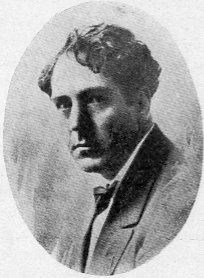 |
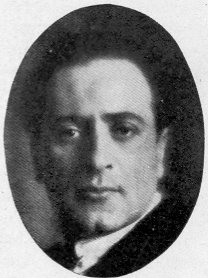 |
| Stephan Macedonsky | Peter Zolotovitch |
It is quite probable that the Bulgarian Opera will never reach the high
state of excellence which the National Theater maintains. And that is not
because the Bulgarian singers are any less gifted than the actors but because
a beautiful, rich, well trained voice, even though belonging to a Bulgarian,
has as much value in the great European capitals as the voices of Germans,
Frenchmen or Italians. This means that the Bulgarian Opera which cannot
regularly pay its stars more than 90 dollars a month will always lose them.
The Opera in Sofia will always prepare singers to perform in Prague, Milan
and Berlin. That is indeed just what is happening now. One of the leading
Bulgarian opera singers, Christina Morphova, lives in Prague; a second,
Anna Todorova, sings almost exclusively for French and other European 'audiences
and a third, Peter Raitcheff, spends most of his time in Italy. It was
the Bulgarian Opera that discovered and helped prepare these very distinguished
singers but not one is now a member of the state troupe in Sofia. And of
course this is not strange, for with the opera houses of the world open
to all talented singers, those from Bulgaria, will go where their voices
and gifts bring them the greatest rewards. Yet in spite of that the present
personnel acquits itself very creditably in practically all of the principal
classic operas.
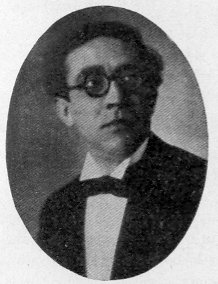 |
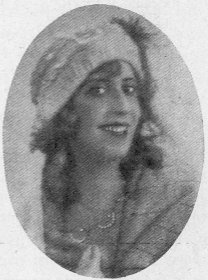 |
| Mihail Popoff | Tsvetana Tabakova |
This year the repertoire consists of the following pieces:
Maestro Atanassoff — Altsek
Giacomo Puccini — Tourandot
Giacomo Puccini — Madame Butterfly
Wolfgang Amadeus Mozart — The Magic Flute
Richard Strauss — Salome
Richard Wagner — Tannhäuser
Richard Wagner — The Flying Dutchman
Jules Massenet — Werther
A. Adam — Si j'etais roi
Giuseppe Verdi — Aida and Rigoletto
Peter Iljitch Tschaikovsky — Eugen Onegin
George Bizet — Carmen Jacques
Offenbach — Tales of Hoffman
If one should be so rash as to point out only one of the most pleasing younger members of the opera he might well mention Tsvetana Tabakova. She is only at the beginning of her career and will undoubtedly continue to improve, but the advance she has made within the last year or so has made her one of the two or three most popular singers in Bulgaria. She has vivacity, grace and a captivating manner, shows promising dramatic talents and employs her rich melodious soprano voice in a masterly way. Another young singer of great charm and promise is Mihail Popoff. For many years Madam Milkova-Zolotovitch has been the leading woman singer, and Stephan Macedonsky the principal tenor. Parts of a religious prayerful nature requiring a soft voice are taken in a moving manner by M. Mitovitch. P. Zolotovitch is the principal baritone in the troupe.
Bulgaria, naturally, has much musical talent outside the Opera. One of her best violinists is Sasho Popoff, who is a favorite of all Bulgarian music lovers and enjoys a high reputation in many European musical centers.
But music, is not a gift of the few. Every organization has its choir,
every school has its band; orchestras and glee clubs abound and practically
no one is too poor or too common to sing.
[Previous] [Next]
[Back to Index]